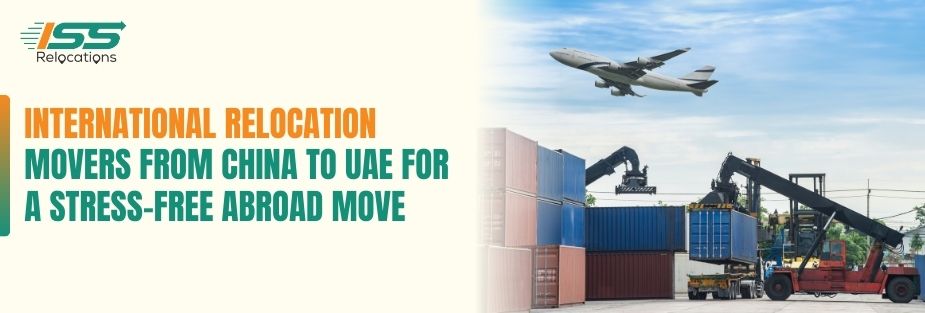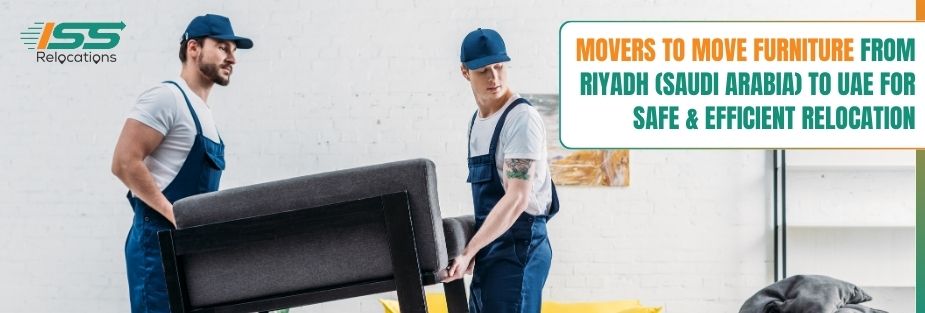
The Ultimate Guide to Relocation to France: What Expats Need to Know
France consistently ranks as one of the most desirable destinations for expats, thanks to its vibrant culture, scenic landscapes, and high quality of life. Whether you’re drawn to the historic streets of Paris, the sunny Mediterranean coast, or the quaint villages in Provence, relocating to France offers a rich and diverse experience. However, making the move requires careful planning and an understanding of the logistical, legal, and financial aspects. From securing a visa to arranging housing and healthcare, expats must navigate multiple steps to ensure a smooth transition. This guide will provide essential insights into these processes, helping you feel prepared and confident about your relocation to France.
Relocation to France can be a life-changing experience, but it does come with challenges. Expats must be well-prepared, especially regarding residency permits, housing, and learning the local language. This guide covers the most critical aspects to consider, ensuring that the process is straightforward and less stressful.
Relocate to France
Get expert help for a smooth, stress-free move to France.
Why Choose ISS Relocations for Your Relocation to France?
ISS Relocations offers tailored services that take the complexity out of your relocation to France. With years of experience in handling international relocations, the company understands the unique challenges expats face and provides a seamless transition to your new life abroad.
Comprehensive Relocation Services
One of the key benefits of choosing ISS Relocations is the comprehensive range of services offered. Whether you’re moving with your family, alone, or for work, ISS manages every aspect of the relocation to France. From packing and shipping your belongings to offering destination settling-in services, ISS ensures that every stage of the move is handled efficiently. This full-service approach minimizes the stress of relocating, allowing you to focus on your new life in France.
Expert Visa and Legal Support
Navigating the visa process for your relocation to France can be overwhelming, especially with ever-changing regulations. ISS Relocations offers expert guidance on the necessary visa and residency permits based on your individual situation—whether you’re moving for employment, studies, or retirement. Their experienced team ensures that all legal documentation is processed correctly and promptly, eliminating potential delays or issues.
Customized Moving Plans
Every move is unique, which is why ISS Relocations provides personalized moving plans that cater to your specific needs. Whether you’re relocating with children, moving pets, or transitioning due to a job transfer, ISS tailors its services to suit your circumstances. The company helps you coordinate every detail of your relocation to France, making sure that your specific preferences, such as housing or schooling, are fully addressed.
Global Reach with Local Expertise
With an extensive global network and on-the-ground experience in France, ISS Relocations combines international expertise with local know-how. This dual advantage ensures that your relocation to France is supported not only by a global team but also by local professionals who understand the intricacies of French culture, bureaucracy, and real estate. This integrated support makes your relocation smoother and more efficient, whether you are settling in a bustling city or a peaceful countryside village.
Navigating the Essentials of Relocating to France
Relocating to France involves more than just moving your belongings. You must navigate various legal, housing, and financial processes to ensure a smooth transition. This section will guide you through key essentials, such as securing a visa, finding housing, understanding the cost of living, and ensuring healthcare coverage.
Visa Requirements for Expats
One of the first steps in your relocation to France is understanding the visa requirements. Depending on the purpose of your stay—whether for work, study, or retirement—you will need to apply for the appropriate long-stay visa, known as the VLS-TS. This visa allows you to live in France for up to one year, with the possibility of extension. If you’re planning to work in France, you’ll need a job contract and proof of income. Students must secure acceptance into a recognized educational institution, while retirees should demonstrate sufficient funds to support their stay. Ensuring your visa application is correctly processed is crucial, as this will determine your legal residency in France.
Housing and Real Estate Options
Securing accommodation is another important aspect of your relocation to France. Most expats prefer to rent initially, especially in popular cities like Paris, Lyon, or Marseille. You have the choice between renting a meublé (furnished) or vide (unfurnished) apartment. Renting an unfurnished apartment gives you better tenant protection, with leases often lasting up to three years. On the other hand, furnished rentals offer more flexibility, ideal for those looking for short-term stays.
For expats interested in buying property, France has no restrictions on foreign ownership. However, it’s important to be aware of additional taxes and legal fees associated with purchasing real estate. Popular expat cities, such as Paris and Lyon, tend to be more expensive, while smaller towns offer affordable alternatives. Researching neighborhoods and property types will help you make the right housing choice during your relocation to France.
Cost of Living in France
Understanding the cost of living is critical when planning your relocation to France. On average, the cost of living in France varies significantly depending on the region. Major cities like Paris are known for their high rent prices, with one-bedroom apartments in the city center costing around €1,200 per month. However, more affordable options can be found in smaller towns like Grenoble or Strasbourg, where rent may be half the price.
In addition to rent, you’ll need to budget for other living expenses such as groceries, utilities, and transportation. For example, a monthly transportation pass in major cities costs approximately €75, and groceries for a family of four may range from €300 to €400 per month. Being aware of these costs will help you manage your finances effectively as you settle into your new life in France.
Healthcare System in France
France is known for its excellent healthcare system, which provides universal coverage to all legal residents. As part of your relocation to France, securing healthcare is essential. Once you have lived in France for three consecutive months, you can apply for public healthcare coverage under the Protection Universelle Maladie (PUMA) system.
To qualify for healthcare, you must contribute to the French social security system, either through employment or direct contributions. Even if you’re not initially eligible, expats can access private healthcare plans until they are covered by the public system. Having health insurance in place before your relocation to France will ensure you’re covered for any medical needs that arise.
You May Also Like: The Benefits Of Hiring A Relocation Company In Qatar
Call For Your Quote!
Practical Tips for a Smooth Relocation
A successful relocation to France requires practical steps beyond just moving your belongings. From setting up finances to navigating the language barrier, following these tips will help make your transition smoother.
Opening a French Bank Account
One of the first tasks to handle after your relocation to France is setting up a local bank account. Having a French bank account is essential for managing your finances, paying rent, and handling daily expenses. To open an account, you will need to provide proof of residency, such as a rental agreement, and a valid identification document. It’s important to note that many banks in France have specific hours of operation, so it might take some time to get everything in place.
For expats, international financial services, such as multi-currency accounts, can be useful during the initial stages of relocation. These accounts allow you to manage funds in different currencies, making it easier to handle your finances during the transition period. Once settled, having a local account will streamline your financial transactions.
Finding Employment in France
If you’re moving to France for work, finding a job should be a top priority. While the job market is competitive, especially in major cities, certain sectors such as hospitality, education, and IT offer good opportunities for expats. Non-French speakers may initially face challenges, but many expats find employment in multinational companies or roles requiring English proficiency, such as teaching.
To improve your chances of employment, it’s beneficial to start the job search before your relocation to France. Websites like Pole Emploi, Indeed, and Expatica are good resources for job listings, while networking can also play a crucial role. Additionally, improving your French language skills will open up more job opportunities and ease your integration into the local culture.
Language Considerations
While major cities in France are increasingly cosmopolitan, speaking French is still essential for fully integrating into society. Although many locals speak English, especially in larger cities, a basic understanding of French will significantly enhance your experience and help in day-to-day interactions, such as grocery shopping or dealing with administrative tasks.
Before your relocation to France, consider taking French language courses or using language-learning apps to build up your proficiency. This will make your transition smoother and help you feel more comfortable in your new environment. Over time, speaking French will also improve your job prospects and social integration.
Managing Finances During Your Relocation to France
Handling your finances is a crucial part of any relocation to France. Upon arrival, you’ll need to manage daily expenses like rent, utilities, and groceries, which may require converting currencies. Many expats choose to open a multi-currency account before moving, which allows for seamless international transfers at competitive rates. These accounts can be invaluable during the early stages of your relocation when you may still be relying on savings or income from your home country.
It’s important to note that opening a French bank account will also be necessary for tasks like setting up direct debits for rent and utility payments. French banks often require proof of residency, such as a rental contract, and a form of identification, so it’s wise to gather all relevant documents before starting the process.
Transport and Commuting in France
Once your relocation to France is complete, you’ll need to navigate your daily commute. Fortunately, France has an excellent public transportation system, including buses, metros, and trains, making it easy to travel between cities or within urban areas. Major cities like Paris, Lyon, and Marseille have well-developed metro systems, while the French railway system (SNCF) connects nearly every corner of the country. A monthly transport pass is a cost-effective solution for daily commuting, with prices ranging from €60 to €75, depending on the region.
For expats planning to live in smaller towns or rural areas, owning a car might be more convenient. While the French road network is well-maintained, be prepared for tolls when traveling on major highways. Additionally, if you’re bringing your car from abroad, you’ll need to ensure it meets French regulations and obtain French car insurance.
Wrapping Up
Relocating to France offers a unique opportunity to experience a rich culture, beautiful landscapes, and a high quality of life. However, a successful move requires careful planning. From securing visas and housing to setting up finances and healthcare, every step of your relocation must be carefully managed. ISS Relocations is here to help simplify these processes, ensuring that your transition is smooth and stress-free. With the right preparation and support, your relocation to France will allow you to fully enjoy everything this wonderful country has to offer.
Plan Stress-free Move with Top Moving Company in UAE - ISS Relocations

Frequently Asked Questions
Is it easy to relocate to France?
Relocating to France can be straightforward if you are well-prepared. The process varies depending on factors like visa requirements and job offers. Expats with employment lined up, sufficient funds, and a clear understanding of the legal system will find the transition much smoother. Services like ISS Relocations help streamline the process by offering professional assistance with visas, housing, and settling in.
Is France an easy country to immigrate to?
France offers multiple pathways for immigration, including work, study, and retirement visas. While the process may seem complex at first, with the right support and preparation, it can be relatively easy to navigate. Non-EU citizens must follow specific visa and residency procedures, while EU citizens enjoy simpler immigration rules.
How much would it cost to relocate to France?
The cost of relocating to France depends on various factors, such as your destination, housing choices, and personal lifestyle. For example, renting a one-bedroom apartment in Paris may cost over €1,200 per month, while smaller cities can offer more affordable options. Other expenses include utilities, groceries, transportation, and visa fees. Budgeting carefully is crucial to a smooth relocation.
Is it worth moving to France?
France is often considered one of the best countries to live in due to its high quality of life, excellent healthcare, and rich cultural experiences. Whether you’re moving for career opportunities, retirement, or education, France offers a welcoming environment for expats. The decision ultimately depends on your personal goals and how much you value the lifestyle offered by this diverse country.
Is France friendly to foreigners?
In general, France is quite friendly to foreigners, especially in major cities like Paris and Lyon, which are accustomed to international communities. Learning the local language and understanding French customs will enhance your experience, making it easier to integrate and feel at home.
How much money do you need to emigrate to France?
Emigrating to France typically requires €10,000–€20,000 for initial costs, including visa fees, housing, and relocation expenses. ISS Relocations simplifies your relocation to France with personalized support to manage every detail of your move efficiently.
How much would it cost to relocate to France?
Relocation costs to France range from €5,000 to €15,000, depending on shipment size, transportation, and additional services. ISS Relocations provides cost-effective solutions and end-to-end services to ensure a stress-free relocation to France.
Moving Company - Recent Blog
Stay informed and prepared for your next move with our latest blogs on moving services in the UAE. From expert packing tips to international relocation guides, ISS Relocations brings you up-to-date insights to make your moving experience smoother, safer, and stress-free.










